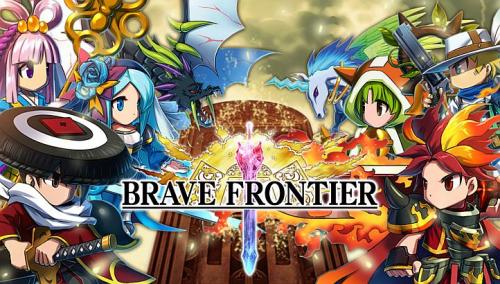The North America digital game market is worth $11.8 billion, but it’s proven tough to navigate for high-profile companies like Candy Crush maker King and Zynga.
But Japanese gaming company gumi is undeterred. It announced today that it will open four new game studios to make content specifically for the North American market. The gaming studio, which is headquartered in Tokyo, also says it will hire 100 new employees in North America to address the distribution demands of their publishing and developer partners.
gumi’s partners include companies like Sega, Line, and Gree, and it recently raised $50 million in funding, which was led by Silicon Valley VC World Innovation Lab (WiL).
gumi’s U.S. headquarters will be in Austin, with other studios in Vancouver, Stockholm, and Kiev. It also plans to open an office in San Francisco to focus on business development and public relations.
Additional studios are being planned will be announced over the next six months.
The company also announced that it has hired A.J. Redmer, formerly CEO of game publisher and developer WeMade and general manager of Microsoft Game Studios Asia, as well as a previous director of game design at Nintendo Software, to head their North American operations.
“With his leadership, AJ will bring consumer production quality to gumi’s mobile development strategy in the West, along with identifying key blue ocean opportunities in each market and building our teams to execute on those opportunities,” said Hironao Kunimitsu, CEO of gumi.
gumi is also reportedly planning an IPO at a $1 billion valuation for this year. Redmer says “at this point, we are considering all possible financing options, but we don’t have anything more to comment on regarding that.”
The company currently has more than 800 employees and says it has grown 300 percent over the last two years, with operations in Singapore, Korea, China, Taiwan, Indonesia, and the Phillippines.
Over 50 percent of gumi’s revenues come from outside of Japan, and it plans to release a total of 30 new games by 2015. Its top title is currently a Japanese-style role playing game called “Brave Frontier” developed by Alim that gumi publishes. The title has been released in 12 languages across 55 countries, and currently claims 10 million users around the world.
Other top games are “Puzzle Bobble” by Taito, which reached the number one spot for free apps on the App Store and Google Play in Korea, with three million downloads in one month, and “Attack 1942”, which was published on Kakao Talk’s platform in Korea and reached the number one free app overall ranking on Android there.
gumi’s 30 titles in development mostly cover casual and mid-core semgents, and includes Sega’s “Chain Chronicles,” which it plans to release in the U.S. soon.
The company’s top markets currently include Japan, the U.S., Korea, and parts of Europe and Southeast Asia.
Gumi is expanding into the U.S. now because “the current success of Brave Frontier in the U.S. market confirmed that we are able to compete in the West, and by operating the game for North America, it has provided us with tremendous insight and expertise about U.S. mobile gamers already that we will continue to leverage across additional titles we’re launching in this market,” says Redmer.
“We’ve found that each market has unique tastes to their local cultures and playing styles and in order to develop games to the best of our ability, it’s important to have studios focused solely on development, monetization, and operations for each market,” he adds.
But if the fates of other game makers are anything to go by, tackling the U.S. market may throw several obstacles in gumi’s way. For example, over the past year, Zynga has faced several well-publicized challenges, including a several major rounds of layoffs, even as it continued to acquire smaller companies. And Candy Crush maker King’s stock recently plummeted after it reported disappointing earnings.
Redmer says gumi plans to differentiate from other game companies like Zynga by taking “a hands-on, homegrown approach to North America and building our presence brick by brick” instead of “going on a big acquisition spree.”
“We operate several studios worldwide and each studio is deeply integrated with their local market. Our new studios will focus on genres we think have been overlooked on mobile (especially in the West), and each studio will have its own organic and deep understanding of the markets in which they operate. Additionally, each studio will develop their own game operations technology, local marketing expertise, and other best practices for their specific market,” he adds.
Gumi’s largest partners currently include Sega and Line. Sega was also part of the recent $50 million fundraising round. The first game gumi will publish with Sega is “Chain Chronicles” for the U.S. market.
“Sega Networks and gumi have partnered to bring Sega’s Japanese games to new territories like North America, Europe, and South Asian countries, and the two parties will further collaborate in order to provide consumers with localized support to match player preferences, languages, and gameplay environments,” says Redmer.
gumi’s strategic partnership with Line includes distribution and investment capital.
“Line will leverage its strengths to reinforce gumi’s business in both Japan and overseas markets, while gumi will begin development for specific gams that will be published on Line, reaching approximately 500 million users globally,” says Redmer.
